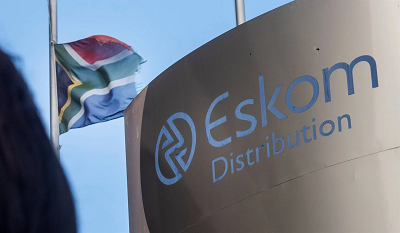

Founder: Turnaround Talk
When it comes to offering value to shareholders or investors, companies are fixated on profits and economic growth as a significant indicator that they are living up to the fiduciary obligations that they have to these vital role players.
It is no secret that the traditional model of State-Owned Entities is fast becoming extinct. According to an article published by Turnaround Talk in June, Government provided no less than R233.6 billion in bailouts and only received R1 million in dividends. And this came from a company that didn’t even receive a bailout.
With key Presidential elections looming in 2024, it is not looking good for the ruling party.
The Industrial Development Corporation (IDC) is the only shining light in a market filled with failures. A News24 article takes a closer look at why this is the case.
Small victories are still victories
The News24 article points out that, this week the development financier not only published its annual financial results within the benchmark six months of its year-end, but it has also reported a net profit.
While this should be the norm for these companies, the article points out that it is actually the exception.
With only a few days left before the end of September, Eskom will this week have to approach the JSE to seek an extension, as it will not be able to publish its financial results for the year ended in March. If these are not published by the end of this week, and no extension has been granted, the JSE will be obligated to suspend the trading of its bonds.
The articvle adds that having its financials published timeously, and keeping the bonds trading on the JSE, is a major covenant of the electricity supplier and its bond investors. Failure to keep its end of the bargain in this regard could result in the investors recalling the approximately R440 billion in outstanding debt.
The consequences, not just for Eskom, but for all those SOEs that rely on the capital markets for funding, would be dire.
Bond investors in these entities, such as Transnet and the SA National Roads Agency Limited (Sanral), have provided capital to the major SA government entities under a “cross default” clause that would trigger a debt recall for all the others, should the debt of one be recalled.
The article points out that Government is in no position to suddenly find the kind of money that would be required, should such a recall occur. A conservative estimate, based on the outstanding debt of the major entities in 2023, would be north of R800 billion. That’s R800 000 000 000.
The reasons for this catastrophic destruction of value and the collapse of key state institutions are staring us all in the face. Undue interference by the government and its executives is the chief culprit. With untrammelled powers, often clueless but powerful politicians are let loose on the entities on which the whole economy relies.
Financial, operational disasters
The News24 article points out that when all the major companies owned and controlled by the government finally report their financial results for the year that ended six months ago, it will be a combined staggering loss in excess of R60 billion. This will require more bailouts to keep the comrades employed while the public has to find alternative suppliers for the services it has already paid the SOEs for.
Eskom has already warned the market and the public that it will report a record net loss of R21.9 billion for March 2023. Last year, the loss was R12 billion.
Transnet has already reported a net loss of R5.7 billion for the year ended March 2023. Last year, it had reported a net profit of R5 billion.
Given the mere fact they are eventually able to even publish financial results, these are among the better-performing entities in the family of business entities controlled and managed by the government.
It really could get worse. And it often does.

Image By: Supplied
Crippled beyond repair
The News24 article adds that South African Airways (SAA) and arms manufacturer Denel have not reported financial results for the past five years. Both are struggling to pay the salaries of employees. The less said about the services they are meant to offer, the better. Equally, the Passenger Rail Agency of South Africa (Prasa) is best left unmentioned.
Denel barely has any significant orders for arms and military equipment. Neither does it have any capacity to handle any such orders. That’s despite the skills of Denel’s highly regarded engineers and its groundbreaking world-class military hardware, such as the Rooivalk attack helicopter and its missile systems.
From its 57 international destinations and 6.8 million passengers in 2019, SAA’s first scheduled flights outside Africa will only start with a weekly flight to Sao Paulo, Brazil late in October. Domestically, the national carrier is a shadow of its former dominant self, with nimble privately owned operators having eaten its breakfast, lunch and dinner. Its best effort will be to fly some 620 000 passengers in financial 2023.
The article adds that, despite R10 billion in bailouts over the past nine years, the SA Post Office is languishing in a business rescue process from which it will not emerge without another significant bailout.
Year after year, the government pumps tens of billions of rand in bailouts to keep these entities. Yet none of them can even remotely fulfil their respective mandates.
Perhaps as a sign of the times, three months ago the South African Broadcasting Corporation, the government mouthpiece, announced, with much fanfare, that its departing chief executive officer was the first holder of the position to complete his full contracted five-year employment term in the last 15 years.
Eskom’s last full-time and now-departed chief executive officer became the longest-serving CEO in 14 years when he finished three years on the job in January 2023. He did not stay to see out his five-year contract.
The News24 article points out that Public Enterprises Minister, Pravin Gordhan, effectively called open season on the executive management of railway operator Transnet when he instructed the new board to conduct a review to establish whether management team members have the requisite skills for the job they are performing. He gave the board 30 days from early September to report back to him on this.
In his instruction to the board, nowhere did Gordhan acknowledge he was responsible for the appointment of the very same people whose skills he is now unsure of.
In September last year, when he appointed the current Eskom board, Gordhan had also given it a similar mandate to review the entire management of Eskom, some key members of which he had personally appointed.
The article adds that, in September, five of the eight board members of the SA Post Office resigned, citing intolerable political interference from Mondli Gungubele, the current minister of Communications and Digital Technologies. Not only is Postbank – part of the Post Office – languishing in business rescue as it is unable to meet its financial obligations to suppliers, it is also struggling simply to transfer social grants to the poor beneficiaries who have no other income.
These entities have long been crippled beyond repair by political interference, corruption, incompetence and a complete disregard for the sole reason for their existence.
IDC’s success recipe
The article points out that, then comes the IDC, which is not without its own problems.
It continues, profitably, to extend funding to support entrepreneurs across the country. Until about five years ago, the IDC also paid a dividend to its shareholder, the government. Not a single year has it skipped paying taxes.
While it did not declare or pay a dividend this year, the word “dividend” appears in its financial results statement 27 times.
The article adds that, miraculously, the IDC did manage to escape most of the state-sponsored corruption that we now call “state capture” and before that.
Thus, it has been able to hold on to its underlying investments in blue-chip companies that constantly pay it juicy dividends. Among those are listed entities BHP Billiton, South32 and Spanish steelmaker Acerinox. These three entities paid the IDC R2.3 billion in dividends this year, part of the R8.8 billion dividend it received.
Telkom, in contrast, sold off its 50% stake in Vodacom, a massive cash cow, some 15 years ago. The government was Telkom’s (and Vodacom’s) single largest shareholder.
While Ebrahim Patel, the minister responsible for the political oversight of the IDC, cannot be credited with much good, he certainly can take credit for his oversight of the entity since he became Economic Development minister in 2009.

Image By: IDC
The article adds that the IDC boasts the most stable leadership team during the past 20 years. The current CEO, Tshokolo Nchocho, will leave at the end of December when his contract expires. He has been on the job since January 2019. Nchocho replaced Geoffrey Qhena, who served 13 years as CEO of the IDC and worked there for a total of 20 years.
Hard to believe but entirely true: the IDC has only had two chief executives during the past 17 years. Eskom has had 14 CEOs in 16 years.
No prizes for guessing which entity enjoys investment-grade credit rating while the other is languishing deep in junk status. No prizes also for guessing which company is doing well, either.
The article points out that Busisiwe Mabuza has been the IDC chairperson since 2015, having replaced Monhla Hlahla, who had been chair since 2011. She was initially appointed onto the board in 2005. Yes, the IDC has only had two non-executive chairpersons in the last 12 years.
In that period, Eskom has gone through six board chairpersons. At Eskom, only one non-executive director has been retained from the board that served three years before the current one.
Two-thirds of the current IDC directors have been on the board for more than six years. Of the 10 Transnet non-executive directors, eight were appointed in July while the remaining two – political heavyweights Sydney Mafumadi and Popo Molefe – have been on the board since 2018.
The article points out that the South African Post Office has no board to speak of. The state of Prasa is better left unsaid. The State President has only recently reluctantly appointed the current SABC board, forced by Parliament in a rare case of executive oversight.
Yet these are the organisations that should be serving the most vulnerable sections of our society. Anyone surprised that nothing works in the hands of the state, except the IDC?
Consistency is key
After winning his fourth major, Gary Player was asked why he was so lucky; his reply was, it’s funny that the more I practice, the luckier I get. Success is about consistency. It’s not a switch that one can turn off and on at will. The News24 article rightly pointed out that the IDC had its share of challenges. However, faith was placed in the board, and they consistently put one foot in front of the other and found success.
If only Government was as patient with its larger entities. Perhaps Andre de Ruyter would have been able to turn Eskom around, and load shedding would be a distant bad memory instead of a consistently irritating mosquito.




